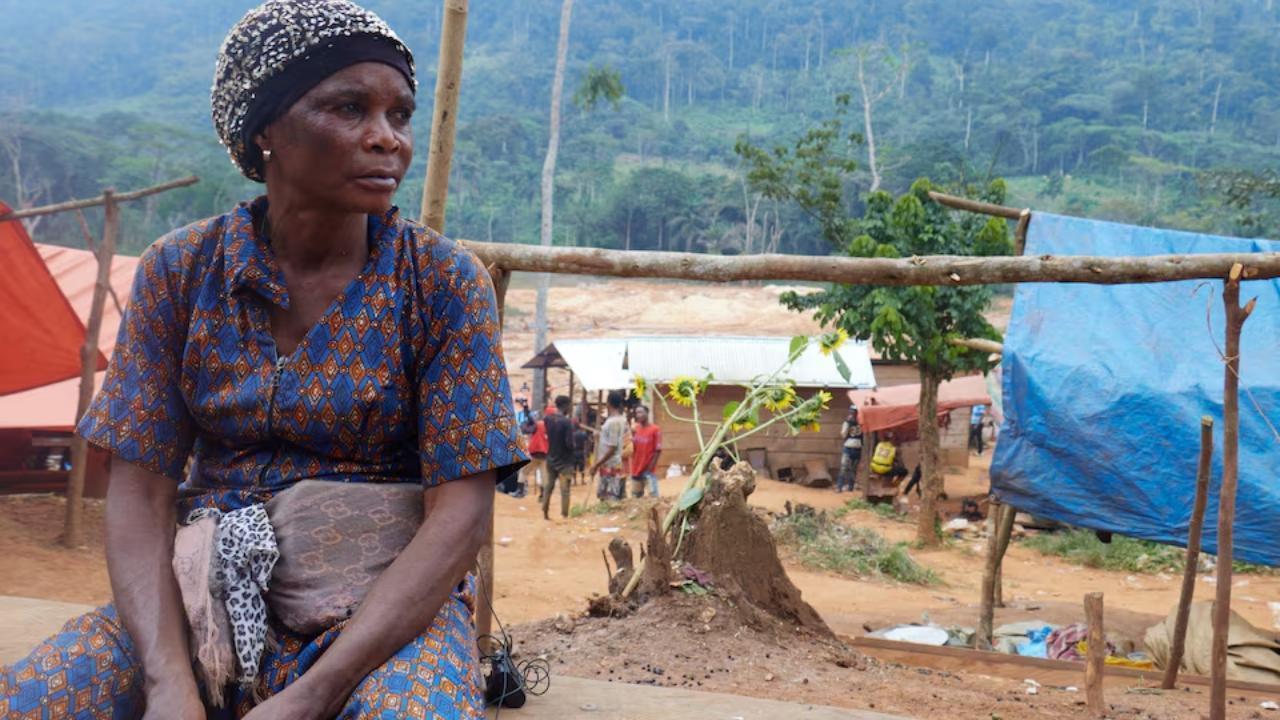
Post by : Monika
Photo: Reuters
In the eastern part of the Democratic Republic of Congo, life has never been easy. The region has long been troubled by rebel groups, violence, and poverty. For many families, survival itself is a daily struggle. This is the story of Maman Soki, a widow who lost her loved ones in a brutal attack and now works in a gold mine to support the children left in her care. Her life shows the pain that conflict causes, but also the strength of women who refuse to give up.
A Woman’s Heavy Burden
Every morning, before the sun rises high in the sky, 49-year-old Maman Soki makes her way to the Pangoyi gold mine in Ituri province. She ties a scarf around her head, carries a piece of cloth to hold sand, and prepares herself for another long, exhausting day. Her job is to lift heavy 30-kilogram sacks of sand that contain tiny gold grains. She carries them up a slippery slope where men process the sand to separate the gold.
This is not the kind of life she dreamed of. But it is the life that war and loss have forced upon her.
The Rebel Attack That Changed Everything
A few years ago, Maman’s life was very different. She had a family, a home, and a future that seemed more secure. That changed the day rebels attacked her village.
The attackers were part of the Allied Democratic Forces (ADF), a militant group that has pledged loyalty to the so-called Islamic State. They raided her community, killing dozens of people. Among the victims were her daughter and her sister.
Maman fled with the surviving children, carrying only a few belongings and the weight of her grief. “I had no choice but to run,” she said. “But when I stopped, I realized I was now alone with four children who depended on me.”
The children are her 12-year-old son, her grandson, and her late sister’s two children. With no husband and no other relatives who could help, the responsibility fell entirely on her shoulders.
Why Gold Mining?
Eastern Congo is one of the richest regions in the world when it comes to natural resources. Beneath the ground lies gold, cobalt, coltan, and other valuable minerals. Yet, instead of bringing wealth to local people, these riches often fuel violence and poverty. Armed groups fight for control of mines, governments struggle to regulate them, and local workers earn only a fraction of the gold’s true value.
For widows like Maman, gold mining becomes the only option. Farming is dangerous because rebels often raid villages and fields. Formal jobs are scarce. Aid is limited. Mining, even though it is exhausting and unsafe, at least offers a way to earn a few dollars each day.
Women in the Mines
Mining in Congo is mostly controlled by men. Men dig deep into the ground, crush rocks, and handle machinery. Women are often not allowed inside the digging pits. Local customs say women bring bad luck underground. Instead, women like Maman are given the hardest physical tasks: carrying sand and rocks up hills, washing gravel, or panning for tiny flakes of gold in muddy water.
It is backbreaking work. A single sack of sand can weigh as much as a grown child. Carrying it up slippery slopes in the hot sun is dangerous. Many women develop health problems such as back pain, swollen joints, and breathing issues from the dust.
Even after such long days of labor, the pay is painfully low. A woman might earn just two or three dollars for carrying dozens of sacks. On some days, there is no pay at all if gold is not found in the sand.
A Day in Maman’s Life
Maman wakes up before dawn to prepare food for the children—usually a small bowl of cassava or porridge. She leaves the older children to watch the younger ones, especially when she is gone for long hours.
At the mine, she joins other women who work silently, each focused on her task. She bends down, lifts the heavy sack of sand onto her back, and begins the steep climb. Sometimes the mud is so thick that she slips. Sometimes her body aches so much that she has to rest halfway. But she cannot stop for long—each trip brings only a tiny bit of money.
When she returns home at sunset, her clothes are soaked with sweat and dirt. Her hands are calloused. Her feet are swollen. But she pushes through, because her children must eat, and because she dreams of giving them a better future.
The Children’s Struggles
Maman’s children also carry the weight of their situation. Her 12-year-old son, Muhindo Obed, helps care for the younger ones when she is away. He tries to continue school, but it is difficult. School fees, books, and uniforms cost money. Sometimes Maman cannot pay, and Obed must stay home. He has told his mother that he wants to become a teacher one day. But he also knows the path ahead is uncertain.
The younger children often go hungry when food runs short. They miss the warmth of their mother and aunt who died in the attack. They see their grandmother coming home each day with tired eyes and wonder how long she can continue.
Violence That Never Ends
Sadly, Maman’s story is not unique. The United Nations says that in just two months of 2025, rebel attacks in Komanda, Beni, and Lubero killed at least 95 civilians. Many of the victims were women and children. These attacks often force survivors to flee into the forests, leaving behind their farms and belongings. For those who escape, mining becomes the only means of survival.
The violence is not only about killing. Armed groups also profit from the mines. They tax miners, control trade routes, and smuggle gold across borders. This illegal gold ends up in international markets, sometimes even in jewelry stores far away, while the women who carry the sand remain trapped in poverty.
Discrimination and Harassment
On top of physical hardship, women miners also face discrimination and abuse. Some men insult them, saying women are too weak for mining. Others demand unfair payments or even sexual favors in exchange for access to work areas. Women often stay silent, fearing they will be excluded from the mine altogether.
Groups like RENAFEM, a Congolese organization that advocates for women miners, try to provide protection and support. They push for women to have more rights in mining sites and for better working conditions. But progress is slow, and many women remain vulnerable.
Dreams of a Better Life
Despite everything, Maman still holds on to hope. Her dream is not big by global standards—but for her, it means freedom. She wants to save enough money to open a small food shop. With a shop, she could earn a steady income without carrying heavy sacks every day. She could feed her children more reliably and maybe even keep them in school.
“I don’t want this life forever,” she says. “I want something better, for my children and for myself.”
Why This Story Matters
At the Pangoyi mine, as the sun sets behind the hills, Maman Soki finishes her last climb of the day. Her body aches, her spirit is tired, but she carries with her the strength of survival. Each sack she lifts is not just sand—it is a symbol of her fight against poverty, war, and despair.
Her story is one among thousands in eastern Congo. But by telling it, we honor the courage of women who continue to carry the future of their families on their backs, even when the world looks away.
For Maman, the gold she carries is not about wealth or luxury. It is about survival, love for her children, and the hope that one day, life will no longer be this heavy.




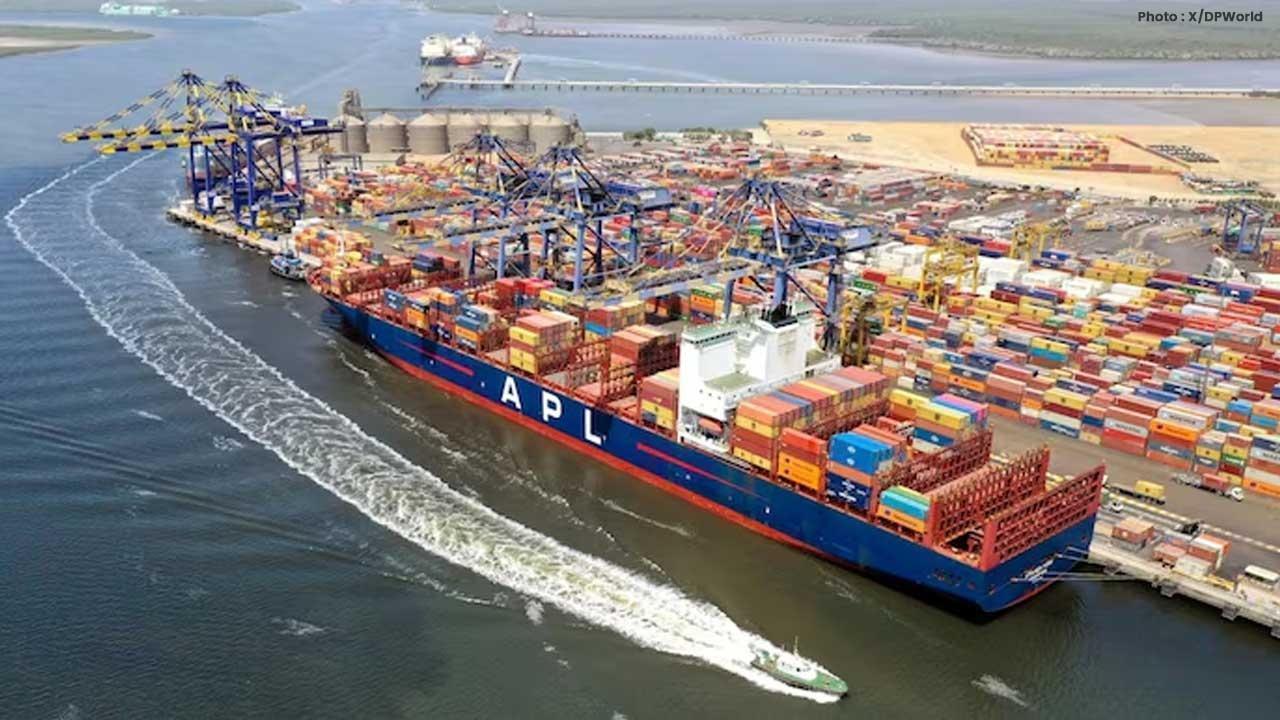
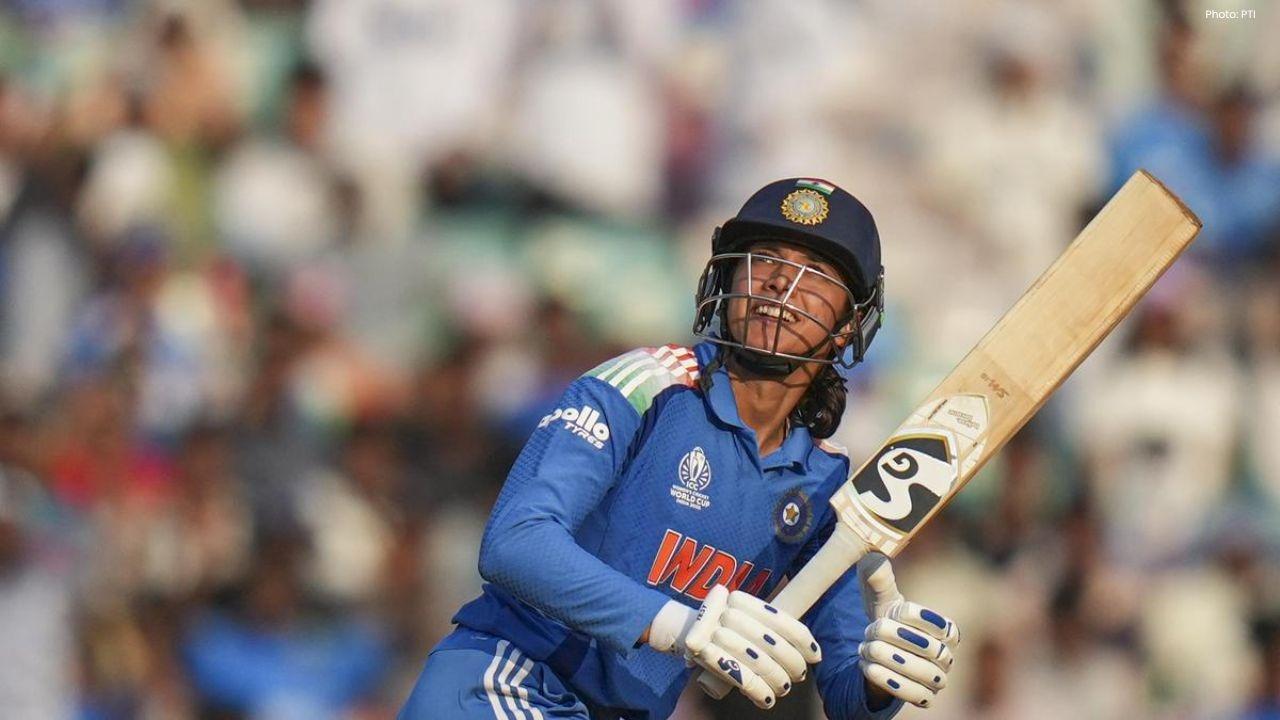
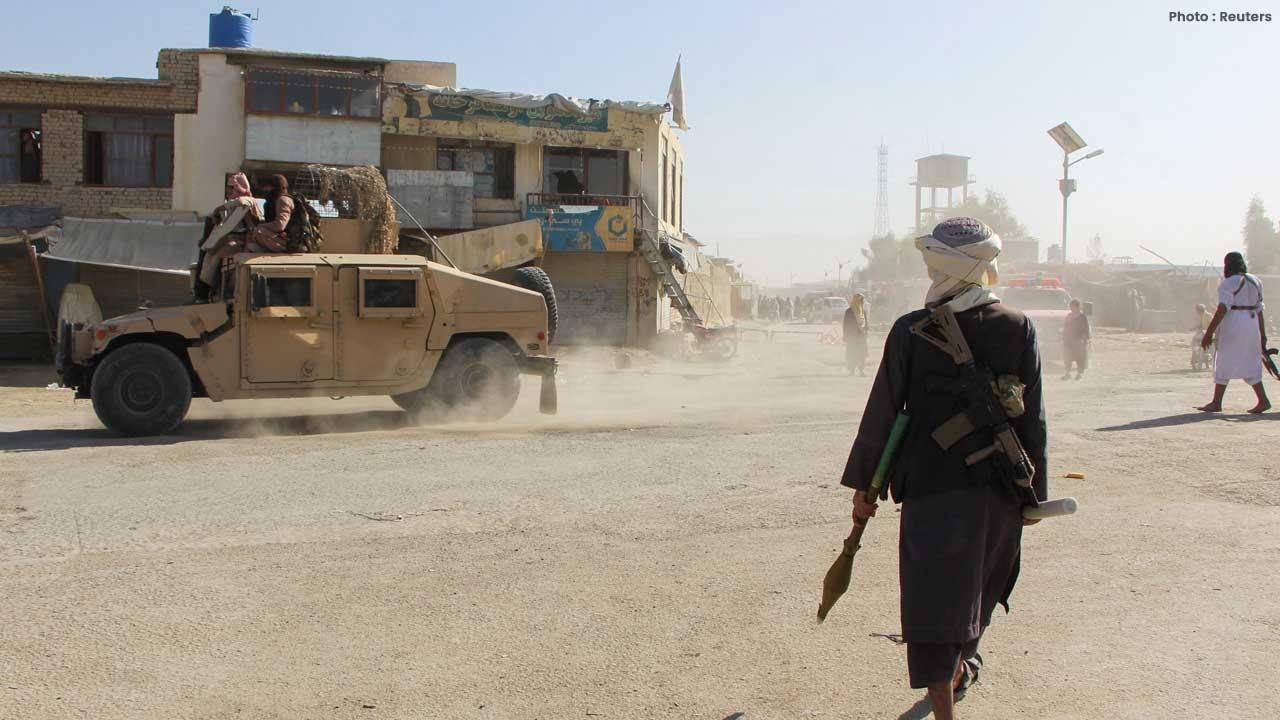

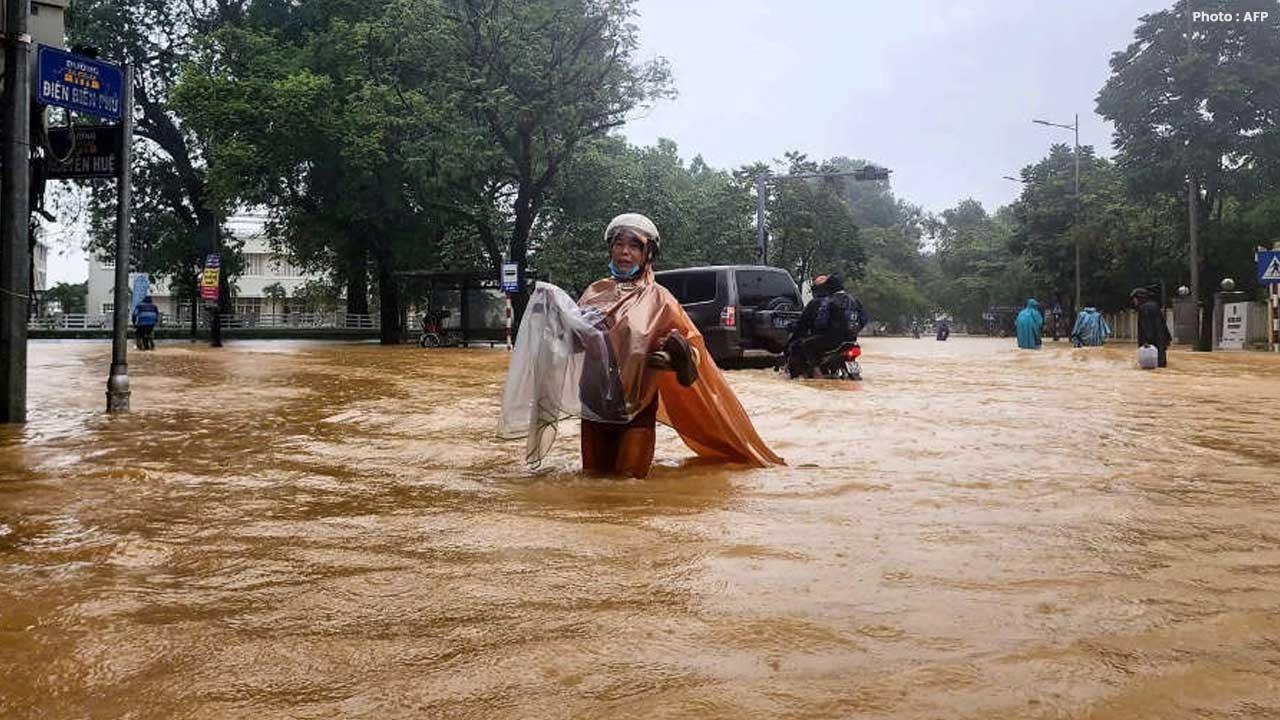

Mitchell Marsh Backs Aggressive Plan Ahead of India T20 Series
Australia captain Mitchell Marsh says his team will continue playing fearless cricket as they prepar

Smriti Mandhana Becomes World’s No.1 ODI Batter
India’s Smriti Mandhana rises to No.1 in ICC Women’s ODI rankings with a career-best rating of 828 a

Suryakumar Yadav Focuses on Team Spirit and Fielding Goals
India captain Suryakumar Yadav stresses teamwork, energy, and stronger fielding efforts ahead of the

Sherwood Leads Canucks to Overtime Win Against Oilers
Kiefer Sherwood scored twice, including an overtime winner, as Vancouver Canucks defeated Edmonton O

Freeman Leads Dodgers to 6-5 Thriller Over Blue Jays
Freddie Freeman’s 18th-inning walk-off homer gives the Dodgers a thrilling 6-5 win over the Blue Jay

Bayern Target Another Victory in German Cup Match
Bayern Munich look to continue their perfect start to the season with a German Cup clash against Col